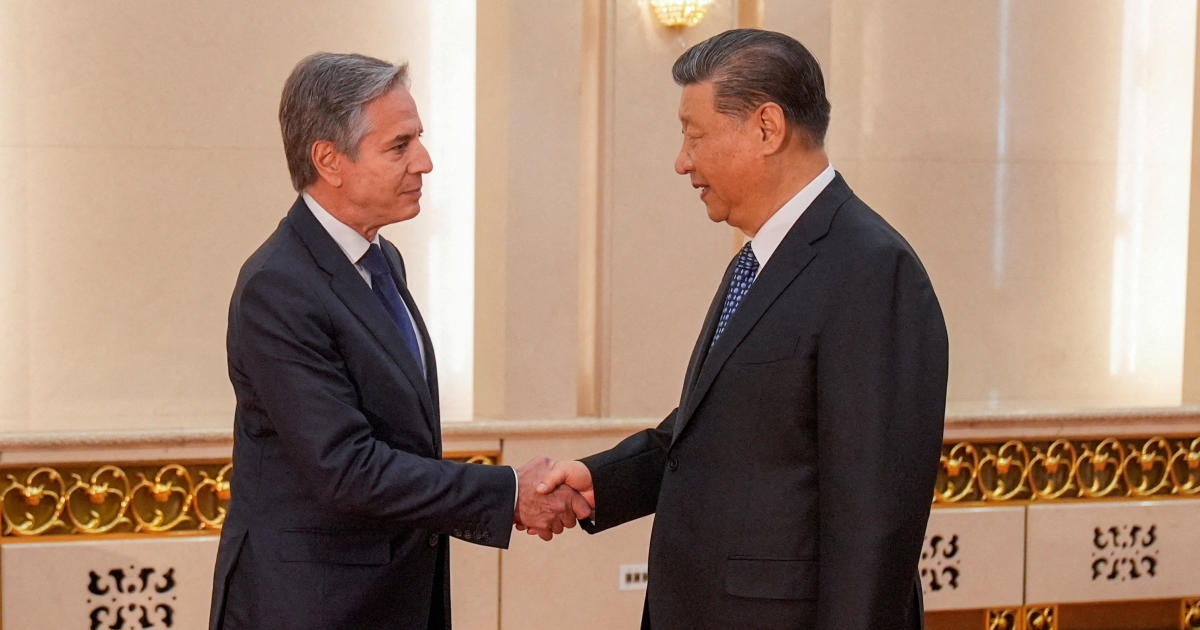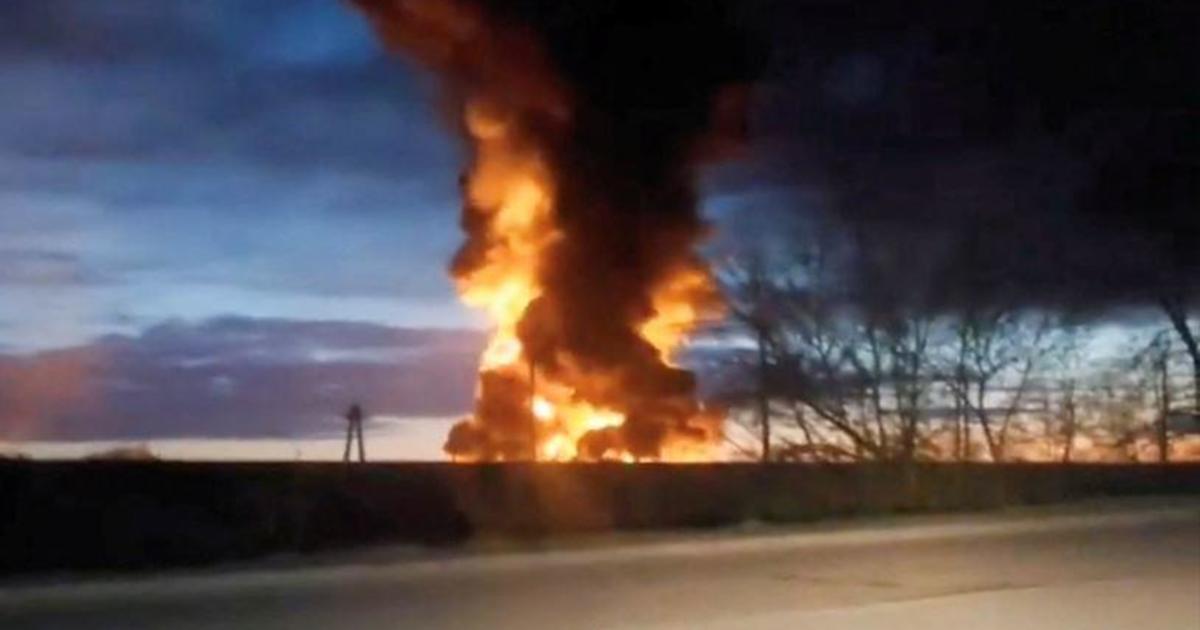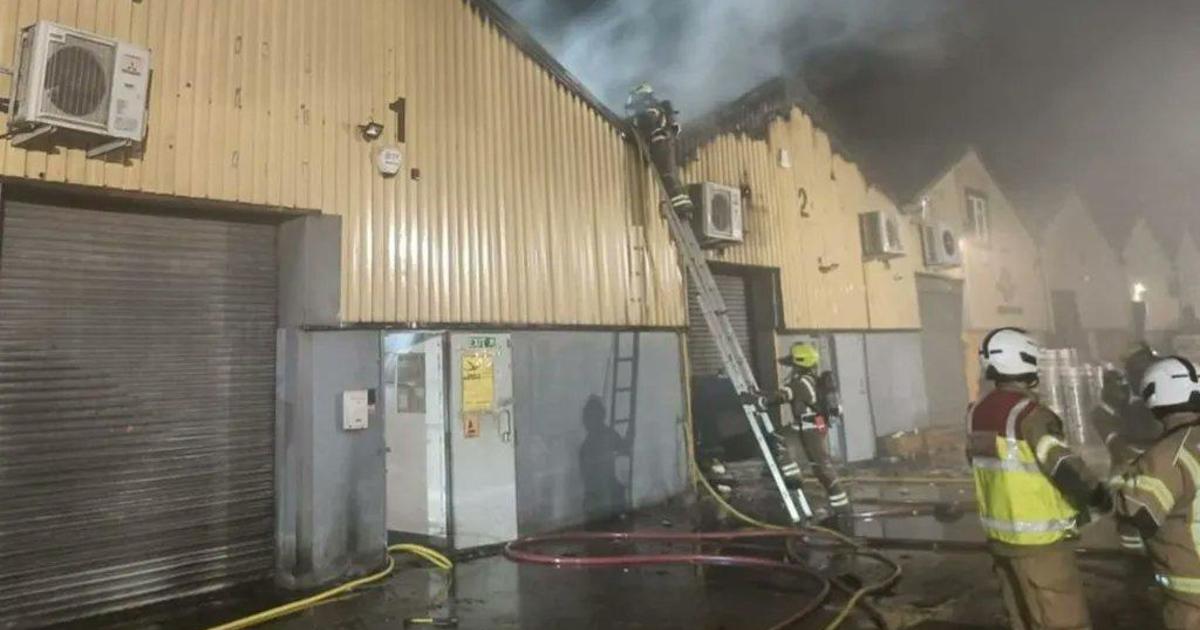NATO chief urges China not to back Russia's war in Ukraine
NATO Secretary General Jens Stoltenberg says that the military alliance has seen "some signs" that China may be planning to support Russia in its war in Ukraine, and strongly urged Beijing to desist from what would be a violation of international law.
Stoltenberg also told The Associated Press in an interview that the alliance, while not a party to the war, will support Ukraine "for as long as it takes." He spoke to The AP in Warsaw, following a meeting of NATO's nine eastern flank members with U.S. President Joe Biden on the region's security.
Asked whether NATO has any indication that China might be ready to provide arms or other support to Russia's war, Stoltenberg said, "We have seen some signs that they may be planning for that, and of course NATO allies, the United States, have been warning against it because this is something that should not happen. China should not support Russia's illegal war."
Stoltenberg said potential Chinese assistance would amount to providing "(direct) support to a blatant violation of international law, and of course (as) a member of the U.N. security council China should not in any way support violation of the U.N. charter, or international law."
On Saturday, Secretary of State Antony Blinken told Blinken said in an interview with CBS News' "Face the Nation" moderator Margaret Brennan that China is actively considering providing lethal support, including weapons and ammunition to aid Moscow in its war against Ukraine. But Blinken spoke only in general terms about the type of lethal aid the Chinese are considering.
"There's a whole gamut of things that — that fit in that category, everything from ammunition to the weapons themselves," he said.
Notably, China's top foreign policy official, Wang Yi, told other leaders at the Munich Security Conference this week that China is working on a peace proposal to end the conflict. That public position runs contrary to what U.S. intelligence has indicated.
Blinken pointed out, "We have seen them provide non-lethal support to Russia for use in Ukraine." He went on to say that "the concern that we have now is based on information we have that they're considering providing lethal support, and we've made very clear to them that that would cause a serious problem for us and in our relationship."
On Wednesday, Russian President Vladimir Putin hosted the Chinese Communist Party's most senior foreign policy official — Wang Yi — raising concern in the West that Beijing might be ready to offer Moscow stronger support in the almost year-old war.
China has pointedly refused to criticize the invasion of Ukraine while echoing Moscow's claim that the U.S. and NATO were to blame for provoking the Kremlin. China, Russia and South Africa are holding naval drills in the Indian Ocean this week.
But State Department Counselor Derek Chollet said the U.S. has assessed that China has not yet decided to provide lethal assistance to Russia.
"Our assessment is they have not yet made that decision up to this point," Chollet told CBS News contributor Michael Morell on his podcast "Intelligence Matters" this week. "But there are just increasing indications that this is something on their minds. And that's a concern to us."
Stoltenberg stressed that while NATO "is no party" to the Ukraine conflict, its tasks are to "ensure that Ukraine prevails" and to "prevent this war from escalating beyond Ukraine and becoming a full-fledged war between Russia and NATO."
He said the main message from the meeting in Warsaw was that "we will provide support to Ukraine for as long as it takes."
It would be a "tragedy for the Ukrainians if President Putin wins in Ukraine," Stoltenberg said, and also "dangerous for all of us" because it would "send the message to all authoritarian leaders that when they use military force, they get what they want."
The Russian attack on Ukraine has prompted Sweden and neighboring Finland to abandon decades of nonalignment and apply to join the 30-nation alliance. But their bids — particularly Sweden's — are being delayed by Turkey, which wants the two countries to crack down on mostly Kurdish groups Ankara regards as terrorists.
Stoltenberg told the AP that following talks with Turkish President Recep Tayyip Erdogan last week he could see Turkey "is moving closer to being ready to ratify and (to) welcome Finland into the alliance. But (Ankara continues) to have some challenges with Sweden."
He said he welcomed the fact that he and Erdogan agreed to a meeting soon "of experts and officials in Brussels" from the three countries involved "to look into how we can make progress also on the ratification of Sweden as a full NATO ally."



